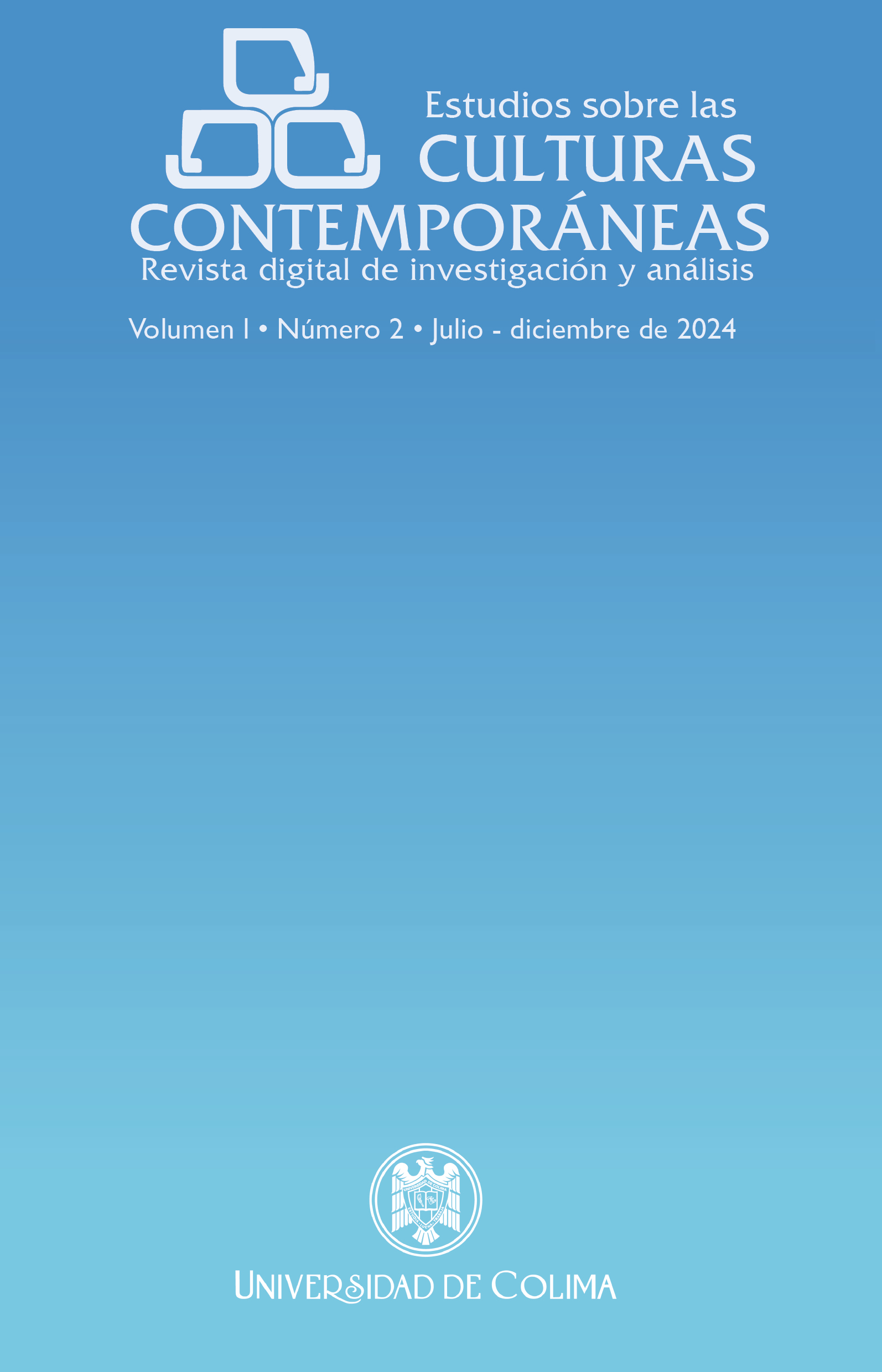Facing the Unexplainable
Challenges of Communication and Understanding in the Anthropological Analysis of Ritual
DOI:
https://doi.org/10.53897/RevESCC.2024.2.01Keywords:
anthropology, capoeira, sensitive experience, inexplicable, ritualAbstract
The aim of this article is to analyze the issue of the inexplicable in the anthropological analysis of ritual. Communication problems exist with the symbolic elements and knowledge transmitted to the participants within the ritual context. Because the experience in this context is intense and outside the realm of everyday life, the article's central argument states that the transmission of ritual knowledge often occurs immediately as a non-verbal sensory experience, where participants interact with non-human entities bestowed with agency, affecting the performative dynamics. To support this argument, an ethnographic description of the Afro-Brazilian ritual of capoeira is made, where there are limits in the transmission of knowledge and where the power of leaders is defined as a discovery of an inexplicable, mysterious and secret force, which affects their lives and their social relationships. Finally, the text describes the way in which ritual practices such as capoeira and its encounter with the inexplicable affect the lives of participants over time.
Downloads
Metrics
References
Abib, P. (ed.) (2013). Mestres e capoeiras famosos da Bahia. Salvador: EDUFBA.
Abib, P. (2015). Conversas de capoeira. Salvador: EDUFBA.
Abreu, F. (2005). Capoeiras: Bahia, Século XIX, Imaginário e documentação, volume 1. Salvador: Instituto Jair Moura.
Brito, C. (2023). “‘Valor de uso’ y ‘valor de cambio’ del berimbau: producción y consumo como símbolos de libertad en la capoeira Angola global contemporánea”, en S. González Varela y R. Nascimento (eds.). Capoeira: pasado, presente y futuro de una práctica afrobrasileña. Brasil: Editora Radiadora, pp. 329-360.
Capoeira, N. (2003). The Little Capoeira Book, rev. ed. Berkeley, CA: North Atlantic Books.
Coutinho, D. (Mestre Noronha) (1993). O ABC da Capoeira Angola, Os Manuscritos de Mestre Noronha. Brasília, Distrito Federal, Brazil: Governo do Distrito Federal.
Cruz, J. L. O. Mestre Bola Sete). (1989). A Capoeira Angola na Bahia. Salvador, Bahia: Empresa Gráfica da Bahia.
Dias, A. (2006). Mandinga, manha e malícia: Uma história sobre os capoeiras na capital da Bahia (1910–1925). Salvador, Bahia: Editorial da Universidade Federal da Bahia.
Douglas, M. (1988). Símbolos naturales: exploraciones en cosmología. Madrid: Alianza Editorial.
Downey, G. (2005). Learning Capoeira: Lessons in Cunning from an Afro-Brazilian Art. Oxford: Oxford University Press.
Fryer, P. (2000). Rhythms of Resistance: African Musical Heritage in Brazil. London: Pluto Press. DOI: https://doi.org/10.2307/jj.14962382
Gadamer, H.-G. (1991). La actualidad de lo bello. Barcelona: Editorial Paidós.
Gadamer, H.-G. (1999). Verdad y método I. Salamanca: Ediciones Sígueme.
Godelier, M. (2011). La producción de grandes hombres: poder y dominación masculina entre los Baruya de Nueva Guiinea. Madrid: Editorial Akal.
Goody, J. (2010). Myth, Ritual and the Oral. Cambridge: Cambridge University Press. DOI: https://doi.org/10.1017/CBO9780511778896
Handelman, D. (2006). “Framing” in J. Kreinath, J. Snoek, and M. Stausberg (eds.) Theorizing Rituals; Issues, Topics, Approaches, Concepts. Leiden & Boston: Brill Academic Publishers, pp. 571-582. DOI: https://doi.org/10.1163/9789047410775_029
Kapferer, B. (1997). The Feast of the Sorcerer: Practices of Consciousness and Power. Chicago and London: The University of Chicago Press.
Kapferer, B. (ed.). (2006). Beyond Rationalism: Rethinking Magic, Witchcraft and Sorcery. New York and Oxford: Berghahn Books.
Lambek, M. (2021). Concepts and Persons. With a commentary by Jonathan Lear, Sherry B. Ortner and Joel Robbins. Toronto: University of Toronto Press. DOI: https://doi.org/10.3138/9781487539597
Lévi-Strauss, C. (1970). Mitológicas III. El origen de las maneras de la mesa. México: Siglo XXI editores.
Lévi-Strauss, C. (1985). La vía de las máscaras. Tres excursiones. México: Siglo XXI editores.
Lévi-Strauss, C. (1995). The Story of Lynx. Chicago and London: The University of Chicago Press.
Lévi-Strauss, C. (1996). Mitológicas I. Lo crudo y lo cocido. México: Fondo de Cultura Económica.
Lévi-Strauss, C. (2000). Mitológicas IV. El hombre desnudo. México: Siglo XXI editores.
Lévi-Strauss, C. (2006). Mitológicas II. De la miel a las cenizas. México: Fondo de Cultura Económica.
Lewis, L. (1992). Ring of Liberation: Deceptive Discourse in Brazilian Capoeira. Chicago: University of Chicago Press.
Muricy, A. C., dir. (1998). Pastinha, uma vida pela capoeira. Documental, 62 min., Salvador, Brasil.
Rapapport, R. (2001). Ritual y religión en la formación de la humanidad. Madrid. Cambridge University Press.
Scott, J. (1985). Weapons of the Weak: Everyday Forms of Peasant Resistance. New Haven and London: Yale University Press.
Soares, E. (2008. A capoeira escrava e outras tradições rebeldes no Rio de Janeiro (1808–1850). Segunda edição revista e ampliada. Campinas, São Paulo: Editora da UNICAMP.
Stoller, P. (2009). The Power of the Between. An Anthropology Odyssey. Chicago and London: The University of Chicago Press.
Stoller, P. and Olkes, C. (1987). In Sorcery's Shadow: A Memoir of Apprenticeship Among the Songhay of Niger. Chicago: University of Chicago. DOI: https://doi.org/10.7208/chicago/9780226098296.001.0001
Turner, E. (1993). “The Reality of Spirits: A Tabooed or Permitted Field of Study?”, Anthropology of Consciousness Vol. 4 (1), pp. 9-12. DOI: https://doi.org/10.1525/ac.1993.4.1.9
Turner, V. (1982). From Ritual to Theatre: The Human Seriousness of Play. New York: PAJ Publications.
Turner, V. (1986). “Dewey, Dilthey, and Drama: An Essay in the Anthropology of Experience”, in V. Turner, and E. Bruner, (eds.). The Anthropology of Experience. Urbana and Chicago: University of Illinois Press, pp. 33-44.
Turner, V. (1988). El proceso ritual: estructura y antiestructura. Madrid: Taurus.
Turner, V. (2013). La selva de los símbolos: aspectos del ritual Ndembu. México: Siglo XXI editores.
Wafer, J. (1991). The Taste of Blood: Spirit Possession in Brazilian Candomblé. Philadelphia: University of Pennsylvania Press. DOI: https://doi.org/10.9783/9780812203868
Wagner, R. (1984). “Ritual as Communication: Order, Meaning, and Secrecy in Melanesian Initiation Rites”, Annual Review of Anthropology, Vol. 13, pp. 143-155. DOI: https://doi.org/10.1146/annurev.anthro.13.1.143
Wagner, R. (2019). La invención de la cultura. Traducción y prólogo de Pedro Pitarch. Madrid: Nola Editores.
Published
How to Cite
Issue
Section
Categories
License
Copyright (c) 2024 Sergio González Varela

This work is licensed under a Creative Commons Attribution-NonCommercial-ShareAlike 4.0 International License.
Estudios sobre las Culturas Contemporáneas permite distribuir, remezclar, adaptar y crear a partir del material en cualquier medio o formato, únicamente con fines no comerciales y siempre que se le dé crédito al creador. Si remezcla, adapta o crea a partir del material, debe licenciar el material modificado bajo términos idénticos. CC BY-NC-SA, incluyendo los siguientes elementos:
BY: se debe dar crédito al creador.
NC: Solo se permiten usos no comerciales de la obra.
SA: Las adaptaciones deben compartirse bajo los mismos términos.










